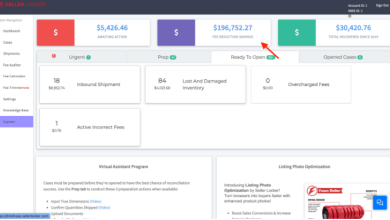In the realm of healthcare, preventive medicine plays a pivotal role in safeguarding individual health and well-being. Central to this proactive approach are health screening tests, which aim to detect diseases or conditions early, often before symptoms appear, allowing for timely intervention and management. This article delves into the importance of Health screening tests, explores key tests recommended across different age groups and demographics, discusses guidelines for scheduling screenings, and highlights their crucial role in promoting preventive healthcare.
Importance of Health Screening Tests
Health screening tests are vital components of preventive healthcare for several compelling reasons:
Early Detection of Diseases
One of the primary objectives of health screening tests is to detect diseases or risk factors at an early stage when treatment is most effective. By identifying abnormalities before symptoms manifest, individuals can benefit from timely interventions that mitigate health risks and improve outcomes.
Prevention and Risk Reduction
Screening tests help identify risk factors such as high blood pressure, abnormal cholesterol levels, or elevated blood sugar levels, which are precursors to chronic conditions like heart disease, diabetes, and certain cancers. Early detection allows for proactive measures such as lifestyle changes, medication, or further diagnostic evaluation to reduce risks and prevent disease progression.
Monitoring Health Status
For individuals with existing health conditions or risk factors, regular screening tests enable healthcare providers to monitor disease progression, assess treatment efficacy, and adjust management strategies as needed. This proactive approach helps optimize health outcomes and quality of life.
Public Health Impact
Widespread adoption of health screening tests contributes to public health initiatives by reducing healthcare costs, minimizing disease burden, and improving overall population health through early detection, prevention, and timely intervention strategies.
Key Health Screening Tests
Health screening tests vary based on age, gender, family history, and individual health risks. Here are some key tests recommended across different age groups:
Blood Pressure Screening
Regular blood pressure screenings are essential for adults of all ages to detect hypertension (high blood pressure), a significant risk factor for heart disease, stroke, and kidney disease. Monitoring blood pressure helps identify abnormalities early and initiate appropriate management.
Cholesterol Panel
A cholesterol panel measures levels of total cholesterol, HDL (good) cholesterol, LDL (bad) cholesterol, and triglycerides. High cholesterol levels increase the risk of heart disease and stroke, making regular screening crucial, especially for adults over 20 years old.
Blood Glucose Test
Blood glucose tests measure fasting blood sugar levels to assess diabetes risk and monitor blood sugar control in individuals with diabetes. Early detection and management of high blood sugar levels can prevent complications such as nerve damage, cardiovascular disease, and kidney disease.
Colorectal Cancer Screening
Colorectal cancer screenings include tests such as colonoscopy, sigmoidoscopy, and stool-based tests (e.g., fecal occult blood test). These screenings aim to detect precancerous polyps or early-stage cancer in the colon or rectum, improving treatment outcomes and survival rates.
Breast Cancer Screening
Mammograms are recommended for women aged 40 and older to detect breast cancer early when treatment is most effective. Regular screening mammograms can detect abnormalities such as lumps or changes in breast tissue that may indicate cancer.
Cervical Cancer Screening
Pap smear tests are performed in women to detect abnormal cervical cells that may lead to cervical cancer. HPV (human papillomavirus) testing is often combined with Pap smear tests to identify high-risk HPV strains associated with cervical cancer.
Prostate Cancer Screening
Prostate-specific antigen (PSA) blood tests and digital rectal exams (DREs) are used to screen for prostate cancer in men, particularly those over 50 years old or at higher risk due to family history or other factors.
Osteoporosis Screening
Bone density scans (DEXA scans) assess bone strength and density, helping diagnose osteoporosis or assess fracture risk, especially in postmenopausal women and older adults.
Guidelines for Scheduling Health Screening Tests
Guidelines for scheduling health screening tests may vary based on age, gender, family history, and individual health risks. General recommendations include:
- Annual or Biennial Screenings: Some tests, such as blood pressure checks and cholesterol panels, may be recommended annually or every few years based on individual risk factors and health status.
- Age-Specific Recommendations: Screening tests such as mammograms, Pap smears, and colorectal cancer screenings are typically recommended at specific intervals starting at certain ages, as outlined by healthcare guidelines.
- Individualized Assessment: Healthcare providers assess each individual’s health status, family history, lifestyle factors, and risk factors to determine personalized screening schedules and recommendations.
Understanding Screening Results
Interpreting screening results involves understanding reference ranges, clinical guidelines, and individual health contexts:
Reference Ranges
Each screening test has established reference ranges indicating normal and abnormal values based on age, sex, and other factors. Results falling outside these ranges may warrant further evaluation or follow-up testing.
Clinical Guidelines
Healthcare providers interpret screening results in the context of clinical guidelines and evidence-based recommendations to determine appropriate next steps, such as additional testing, lifestyle modifications, or treatment interventions.
Follow-Up Care
Follow-up care involves discussing screening results with healthcare providers, understanding implications for health and well-being, and implementing recommended strategies for preventive care or disease management.
Challenges and Considerations
Access and Affordability
Access to screening tests may vary based on geographic location, socioeconomic factors, and healthcare system resources. Efforts to improve accessibility and affordability of screenings are crucial for equitable healthcare delivery.
False Positives and False Negatives
Screening tests may produce false-positive (indicating a problem when none exists) or false-negative (missing a problem that is present) results, necessitating additional testing or clinical evaluation to confirm findings.
Patient Engagement
Engaging patients in understanding the importance of screenings, adherence to recommended schedules, and proactive health management enhances participation and effectiveness of screening programs.
Future Directions in Health Screening
Advancements in technology and research continue to enhance the effectiveness and accessibility of health screening tests:
- Personalized Medicine: Incorporation of genetic testing and biomarker analysis to tailor screening recommendations and treatment strategies based on individual genetic predispositions and risks.
- Digital Health Technologies: Integration of telehealth, mobile apps, and remote monitoring tools to facilitate screening, follow-up care, and patient engagement.
- Population Health Initiatives: Public health efforts to increase awareness, education, and participation in screening programs to reduce disease burden and improve health outcomes at the population level.
Conclusion
Navigating Health screening tests is essential for maintaining optimal health and preventing disease. By understanding the importance of screenings, knowing which tests are recommended based on age and risk factors, and interpreting screening results effectively, individuals can take proactive steps toward early detection, timely intervention, and improved health outcomes. Collaboration between healthcare providers and patients is crucial in implementing screening guidelines, discussing results, and planning appropriate follow-up care. As healthcare continues to evolve, the integration of advanced technologies and personalized approaches holds promise for further enhancing the effectiveness and accessibility of health screening programs, ultimately benefiting individuals and communities nationwide. Embracing regular health screenings as part of preventive healthcare fosters a proactive approach to health management, promoting longevity and quality of life for all individuals.




